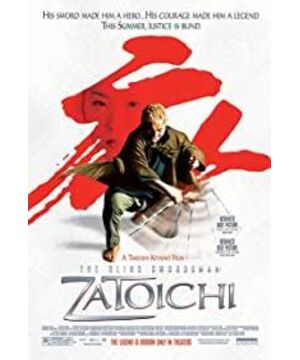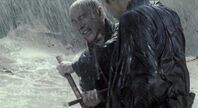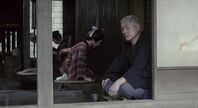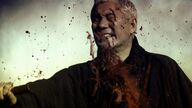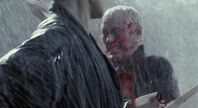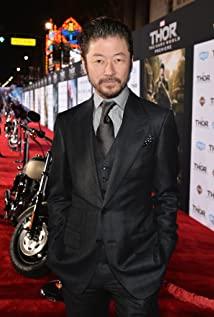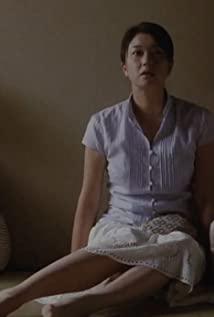Many people, watching Japanese movies always feel that beauty is beautiful, but it is an indisputable reality that it is too boring. Takakura Ken's expressionless face and the screen image of not uttering a word for a long time is really "cool". But if this continues, a lot of spectators who spend money to watch will definitely run away. In recent years, the Hallyu has become very popular, and it has become popular among ordinary people, but when you look closely, it is no wonder that, except for the few purely literary films in Korean films, most of them are noisy youth comedies and show off beautiful figures.
Perhaps I have seen the decline of adhering to the "slowness". In recent years, the Japanese film industry has many maverick rebels, and Kitano is one. Although his "violent aesthetics" has been mentioned frequently. I just want to discuss the next one—
Zatoshi, a secluded swordsman who draws his sword extremely fast, and he will see blood when he shoots. A blind old man in the eyes of others, taciturn and sometimes a little confused Confused. Without telling his past and present, the blind old man came to a small town controlled by a gang. At this time, a swordsman with a strong warrior and two avenging singers for his parents also came to the town. In addition to massaging and chopping firewood for his kind-hearted aunt Fuzi, the old man went to the casino in town to play two in his spare time. The blind old man, let alone invisible, seemed to have eyes for insight into the world, and there was nothing around him to hide him. In fact, the story is quite simple. In the end, the blind old man swung his sword, killing all the bully who was on the head of the village, and helping the geisha to avenge his father’s murder. In any case, it was a reunion. The ending.
But from a few details, you can also see Kitano Takeshi's intentions. The first is the music. Although it is about ancient Japanese stories, the music of the whole film is extremely full of modern percussion charm. Many of the sections are reminiscent of a British percussion orchestra. The instruments used in this section are all Appliances in life. The film begins to explain the scene in which four farmers are plowing the land, the hoe falls, crackling, and the background music is clearly contemporary jazz. There are also plots of workers building houses, sawing wood, planing, and nailing. During their busy work, the ding-dong is very interesting, and the music has clearly realized the joy of joy. However, the most creative is counted. At the end of the film, the villagers celebrated a large part of tap dance. Here, Takeshi Kitano played a game of teasing Japanese wooden clogs. This scene of group dancing is the essence of the whole film.
In addition, in terms of characters, Kitano is also very creative. A knight with strong swordsmanship is not the appearance of people imagined, but a blind old man with scrutiny. There is no rhetoric, but he found the casino owner instead. Shaoqian cut it off with a single knife, without remembering the consequences. Such a hero is somewhat anti-traditional. On the contrary, the samurai who also came to the town seemed to be a hero, but in order to treat his wife, he did not hesitate to turn to the gang as a bodyguard to kill people and exchange money. I love my wife deeply, but can kill innocent people with a knife. For a time, justice is difficult to judge simply.
The blind swordsman was not really blind, but when he got rid of the last bad guy and on the way back to the village, he was stumbled firmly by the trash with his eyes open.
The story ended with his eyes wide open when he fell. "In fact, you can't see anything when you open your eyes." Watch out! Kitano Takeshi is hiding in the screen, laughing secretly!
View more about The Blind Swordsman: Zatoichi reviews


